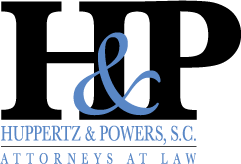Where Wisconsin criminal cases are concerned, the majority typically follow a chain of events like this:
- A district attorney files a criminal complaint that states which accusations are being made. This must include the crime charges, the identity of the defendant and where/when the alleged crime occurred.
- Probable cause plays a huge part in determining which cases go to court. The DA must be able to show probable cause that the defendant could be guilty of the accusations.
- In felony cases, there is typically a preliminary hearing under Wisconsin law, during which the DA must present evidence that this felony probably occurred. If there is no probable cause in this hearing, the case will be dismissed at this point in time.
- If there remains sufficient probable cause, the case will go to trial.
But sometimes Wisconsin criminal cases use grand juries to indict individuals when the DA requests them. In these situations, the case begins at the grand jury level opposed to the DA filing a complaint. A secretive proceeding is held involving at least 17 jury members, usually when investigators need to take testimonies under oath or they are trying to gather witness testimonies to provide enough evidence to issue a complaint. The 17 members of the jury will then vote, and at least 12 must agree for the indictment to issue.
After this grand jury proceeding, if the defendant is indicted, he or she is still entitled to a preliminary hearing, and the case proceeds the same as it would in a typical situation. But if the grand jury elects to dismiss the case, information isn’t made public, thereby protecting the defendant’s reputation.
The attorneys of Huppertz & Powers, S.C. can help you build the strongest case possible if you’re facing criminal charges in southeastern Wisconsin, including Milwaukee, Racine, West Bend, Brookfield, Oconomowoc, Delafield, Juneau, Port Washington and Elkhorn.
Call us today to schedule a 100% free and confidential initial meeting: 262-549-5979. You can also fill out our online contact form for a prompt response.

